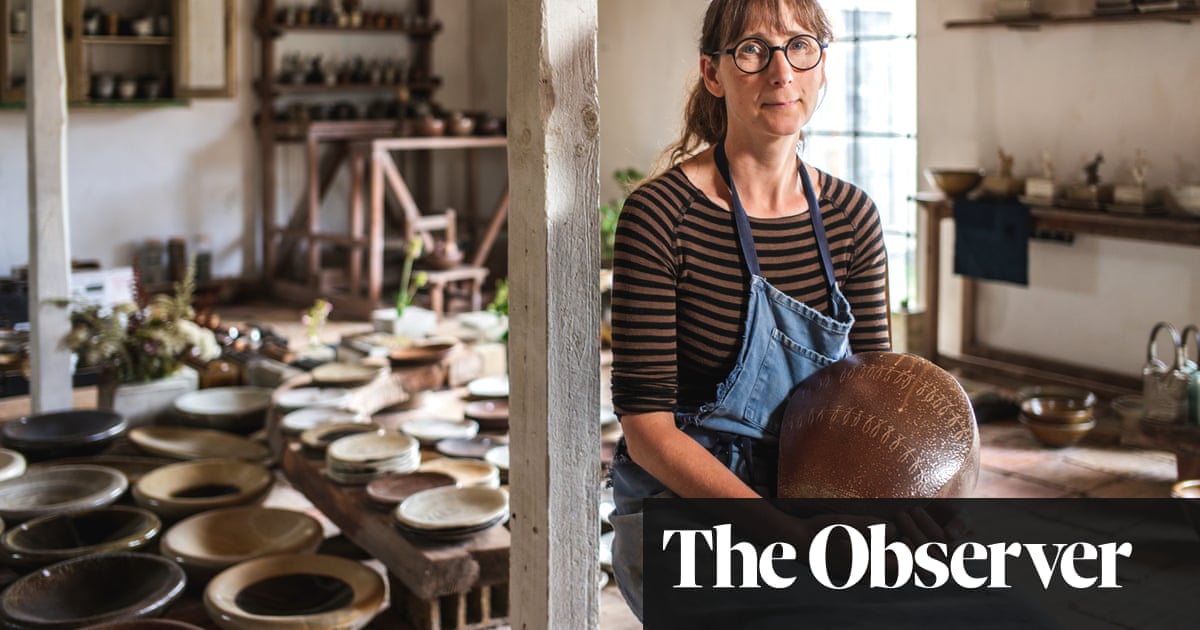
Toast is 20. But the memoir that chronicled my childhood (cooking, eating, crying, and a few other “ings” a wiser author might have left out) started life as neither book, film nor stage play, but as an article in the Observer.
I was unsure about the idea. A request for a piece about the food I had grown up with. Did my editor know that my childhood had been a catalogue of sliced white bread, Jacobs’ Cream Crackers and Sugar Puffs? That I refused to eat any meat that wasn’t roast chicken or a lamb chop and any vegetable save frozen peas? I pondered how a story whose gastronomic highlights were arctic roll and butterscotch Angel Delight would go down with the readers. Surely the food of my father’s childhood, where his broke single mum brought him up on bread and dripping and soup made from bones begged from the butcher, might produce a better story.
As I handed my tales to Justine Picardie, then the editor of Observer Life magazine, I explained how jelly with mandarin oranges, Abbey Crunch biscuits and Smartie-studded birthday cake had been a lifeline to a small boy whose early life had been far from idyllic. There were chapters on chocolate mini rolls and Space Dust, cheese and onion crisps, Fray Bentos steak and kidney pie, and the bowl of yellow bliss that was Mum’s banana custard.
To give the culinary delights of the 1960s a sense of place, I chronicled what was happening in my life at the time, including the death of my mother when I was nine and a somewhat misspent adolescence. As I filed, I mentioned she may like to cut the autobiographical element.
Rather than cut, it was decided to dedicate most of the magazine to the piece. I remained hesitant. Other cooks’ memoirs were filled with trips to buy goat’s cheeses and pain au chocolat in the markets of Provence, where mine was a story of buying Kraft cheese slices and Jammie Dodgers from the grocers in Wolverhampton.
I don’t think I have ever written anything that created a bigger avalanche of letters and emails. The reaction from readers was uplifting. I had obviously underestimated the number who had also lived through the dubious delights of jelly with evaporated milk. Apparently, I wasn’t the only one who knew their humbugs from their Nuttall’s Mintoes. Louise Haines, my book editor at 4th Estate phoned to commission an entire childhood memoir.
Toast – The Story of a Boy’s Hunger was written on an old iMac at the desk in my north London bedroom and published in 2003. Like most memoirs, there were details missing, some pieces exaggerated for effect, other stories simply forgotten. A few facts and names were fudged, if only to protect those involved.
I received criticism from some for being hard on my father and stepmother. A grumble that irked me as I felt the memoir had been extremely lenient, generous even. I had pared back the beatings from my bullying father and preserved my stepmother’s privacy by changing her name. None of which stopped the family being somewhat irked by my scribblings.
The book gathered a number of awards which its author collected gratefully, the first of which was at a rather grand ceremony in the ballroom at Grosvenor House. “Oh dear, my work appears to have been beaten by a book about toast,” spat out one of the disgruntled authors. This was followed by others and then news the book was to be translated into German and Polish, Dutch and Korean. The US edition contained a glossary explaining what fairy cakes and crumpets were. I am honestly not sure what the average reader in Seoul would make of a Walnut Whip or a Sherbet Fountain. Whatever, my little book had sprouted legs.
More news arrived. A film company was interested. I met with Alison Owen of Ruby Films, who had produced Elizabeth R. Over tea, we discussed the possible cast and the chapters that would and wouldn’t work on screen. Then we heard BBC One wanted it for their Christmas line up of family-friendly viewing [it was shown in 2010], which, though thrilling, put paid to my thoughts of a grey, gritty and salacious biopic. Lee Hall, who had written the screenplay for Billy Elliot, was brought in to write the script. Daunted by the whole idea, I decided to stay out of the picture.
One hot summer’s day, I went to the first reading at what felt like a church hall, tucked away behind a scruffy door in Soho. Victoria Hamilton had been cast – perfectly – as my kindly, gentle mother. (Mum’s character was the one I felt most protective of.) I sat with Helena Bonham Carter, who was to play my stepmother. The first of many an hour spent with Helena, getting to the heart and soul of the woman I had renamed Joan Potter. What hit me at the time was the way I could remember with such terrifying clarity every detail of someone I had not seen for decades, from the way she lit her endless cigarettes to the flourish with which she sprayed her beloved Pledge over the woodwork.
Some of the filming was done in an abandoned hotel in Birmingham, a crumbling, once magnificent place with a vast white ballroom with ceilings like a wedding cake. I spent time with the first two Nigels, Oscar Kennedy and Freddie Highmore. Filming my television cookery series, I could only attend a few of the rehearsals. It was sod’s law I turned up for the most traumatic moments of the story – a heartbreaking scene just prior to my mother’s death and one where she dances the waltz with Oscar, which had me floored. I sobbed throughout the scene.
In 2017, my agent received an approach about turning Toast into a play. The script turned out to be a joy. As the director, cast and crew set about, I attended many rehearsals. There purely to watch and bring cake, I became surprisingly emotionally invested. A stage production feels more visceral and no matter how many times I watched the tenderness with which Lizzie Muncey played my mother, I ended up in tears. The play debuted at the Lowry in Salford and then went on to the Edinburgh festival. The day we heard it had been picked up for a London run and then a countrywide tour was both happy and slightly intimidating, to me if not the cast.
James Thompson took on the role of food director, orchestrating the play’s cooking scenes including a poignant slow-motion rendition of an adolescent Nigel making mushrooms on toast for his dead father. Easy enough to fake, but James wanted the scene to be real, with gas burners on stage and the smell of thyme and garlic butter rising all the way to the upper circle. It worked brilliantly, though probably left the audience ravenous. Giles Cooper, who played the young Nigel, valiantly tucked into mushrooms on toast night after night, despite loathing all manner of edible fungi.
It was suggested that the audience might appreciate something to eat during the performance. A simple enough idea – bags of sweets and tarts sent out so you could simultaneously experience what the cast were eating on stage. But having them leap off stage to deliver bags of toffees and caramels and thousands of boiled sweets turned out to be both a logistical nightmare and an outright winner. To a thumping soundtrack of Talking Heads’ Psycho Killer, my stepmother and the rest of the cast descended on the audience with plates of lemon meringues.
As the play hurtled around the country, it felt as though I spent the entire run on trains from one end of the nation to the other. There were only a few I didn’t make it to. I loved the tour even more than the London run. Strangely, the cast insisted the “house” felt different when I was in there, so I spent many an evening in the stalls in support. I saw the play often enough to know every line. It crossed my mind that if Giles ever got stuck on the underground, the real Nigel could possibly squeeze into his short trousers and climb on stage.
The scripts can now be licensed for amateur productions, the first of which happened just before Christmas at Bromley Little Theatre. Attending the first night, I realised the story and its warmth works particularly well in intimate theatres. Sitting in the red velvet seats on a freezing winter’s night we tucked into our Walnut Whips and Love Hearts for comfort, just as this little boy had, half a century before.












